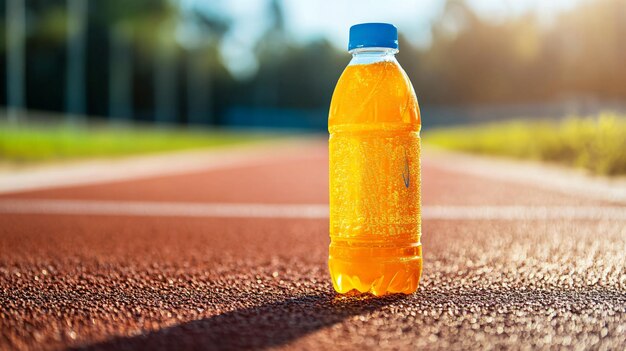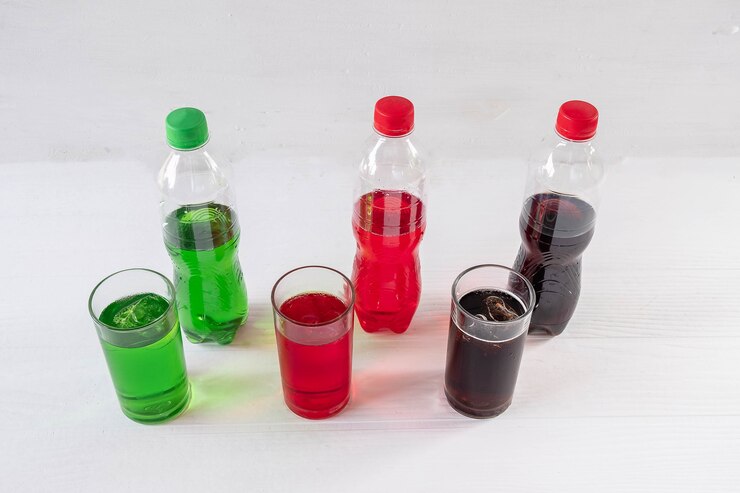Gatorade has become a household name in hydration drinks. Its colorful bottles and promise to replenish lost fluids make it a favorite among athletes and fitness enthusiasts. But does Gatorade hydrate you effectively? And when should you reach for it instead of plain water? Understanding its role in hydration can help you decide whether it’s the right choice for your needs.
What is Gatorade?
A Brief History of Gatorade
Gatorade was created in 1965 at the University of Florida. The goal was to help the university’s football team, the Gators, combat dehydration during intense games. Since then, it has evolved into a global sports drink brand, marketed as essential for athletes.
Key Ingredients in Gatorade
The core components of Gatorade include:
- Water: The primary hydration medium.
- Electrolytes: Sodium and potassium are added to replenish what the body loses through sweat.
- Carbohydrates: Usually in the form of sugars, these provide energy.
- Flavoring: Enhances taste to encourage people to drink more.
Types of Gatorade
Gatorade now comes in various forms to suit different needs:
- Classic Gatorade: The original formula, high in electrolytes and carbohydrates.
- G2: A lower-calorie option with reduced sugar content.
- Gatorade Zero: Sugar-free, designed for those wanting electrolytes without the calories.
How Does Hydration Work?
The Body’s Need for Water and Electrolytes
Hydration is essential for survival. Water helps maintain body temperature, transport nutrients, and remove waste. Electrolytes like sodium and potassium balance fluids inside and outside cells.
Sweat and Electrolyte Loss
When you sweat, your body loses both water and electrolytes. Intense exercise or exposure to heat increases this loss. Without replenishment, dehydration can occur, leading to fatigue, cramps, and even heat-related illnesses.
Does Gatorade Hydrate You?

Gatorade is designed to replace fluids and electrolytes lost during sweating. The electrolytes, mainly sodium and potassium, help the body retain water. This is particularly useful during intense physical activity.
The Role of Carbohydrates
Carbohydrates in Gatorade provide quick energy. This is especially beneficial during prolonged exercise when glycogen stores in muscles are depleted. By restoring energy, Gatorade supports both hydration and performance.
Comparison with Water
Water is excellent for hydration in everyday situations. However, during intense exercise or hot weather, Gatorade may be more effective because it replaces lost electrolytes. It also encourages more drinking due to its appealing taste, which can help maintain hydration levels.
Related to Read: Is Watermelon Good for Hydration?
Pros of Using Gatorade for Hydration
Quick Electrolyte Replenishment
Gatorade quickly restores electrolytes lost through sweat. Sodium and potassium are essential for muscle function and fluid balance. This makes it ideal for athletes or those exercising for long durations.
Increased Fluid Retention
The sodium in Gatorade helps the body retain water. This can be crucial during extreme heat or long exercise sessions, preventing dehydration more effectively than plain water.
Palatability
One of Gatorade’s strengths is its taste. Many people find it easier to drink than water. This increased palatability leads to higher fluid intake, which is vital for staying hydrated.
Potential Drawbacks of Gatorade
High Sugar Content
One of the main criticisms of Gatorade is its sugar content. A 12-ounce serving contains about 21 grams of sugar, similar to some sodas. Consuming high amounts of sugar can lead to weight gain, insulin spikes, and an increased risk of chronic conditions like diabetes.
Caloric Contribution
Gatorade is calorie-dense for a drink, with approximately 80 calories per 12-ounce serving. For athletes, this is beneficial, as they need extra energy. However, for sedentary individuals, these calories can add up quickly and contribute to unnecessary weight gain.
Limited Electrolytes
While Gatorade contains sodium and potassium, it lacks other beneficial electrolytes like magnesium and calcium. Alternatives like coconut water or specialized electrolyte tablets often provide a broader range of minerals. This makes Gatorade less effective for those with specific electrolyte deficiencies.
When Should You Use Gatorade?
Intense Workouts Lasting Over 60 Minutes
Gatorade is most effective for activities lasting over an hour, such as marathon running, cycling, or intense sports. It replenishes lost fluids, electrolytes, and carbohydrates, keeping energy levels up.
Hot and Humid Climates
In environments where you sweat excessively, Gatorade can be helpful. Its electrolyte content supports hydration and prevents heat-related illnesses like cramps or heat exhaustion.
Illness-Related Dehydration
During illnesses causing vomiting or diarrhea, the body loses significant fluids and electrolytes. Gatorade can help rehydrate and restore balance. However, it’s always advisable to consult a healthcare professional in such cases.
Alternative Hydration Methods
For daily hydration or low-intensity activities, plain water or other low-calorie options may suffice. Alternatives like herbal teas, coconut water, or electrolyte-enhanced water can be better choices for general hydration.
Gatorade vs. Other Hydration Drinks

Water
- Advantages: Zero calories, easily accessible, and perfect for everyday hydration.
- Disadvantages: Lacks electrolytes, making it less effective during intense exercise.
Coconut Water
- Advantages: Coconut water is naturally rich in potassium, low in calories, and sugar compared to Gatorade.
- Disadvantages: Limited sodium content may not suffice for extreme sweating.
Electrolyte Tablets
- Advantages: Customizable electrolyte levels without added sugars.
- Disadvantages: May lack the palatability and carbohydrates found in Gatorade.
Other Sports Drinks
- Advantages: Options like Powerade or Pedialyte often offer similar benefits to Gatorade.
- Disadvantages: Sugar and calorie content can still be a concern.
Expert Opinions
Nutritionist Insights
Experts generally agree that Gatorade is useful for athletes and those with high sweat losses. However, for most people, water is sufficient for daily hydration. Gatorade’s sugar content makes it unsuitable as a casual drink.
Recommendations for Moderate Consumption
Nutritionists recommend drinking Gatorade only when truly necessary. Stick to it during high-intensity workouts or illnesses. For everyday hydration, opt for water or low-calorie alternatives. Gatorade Zero can be a better choice for those wanting electrolytes without added sugar.
FAQs
Does Gatorade hydrate better than water?
Gatorade hydrates effectively after prolonged exercise by replenishing electrolytes and fluids. For everyday hydration, water is sufficient and healthier due to the absence of added sugars.
Is Gatorade good for rehydrating after sickness?
Yes, Gatorade can help replace electrolytes and fluids lost during vomiting or diarrhea, but it may not be suitable for individuals needing low sugar options.
Can drinking Gatorade regularly harm your health?
Frequent consumption of Gatorade may contribute to excessive sugar and calorie intake, potentially increasing the risk of weight gain and related health issues.
Are there healthier alternatives to Gatorade for hydration?
Coconut water, electrolyte tablets, and low-sugar options like Gatorade Zero provide similar benefits with less sugar and fewer calories.
Conclusion
Gatorade can be an effective hydration solution in specific situations. It is especially helpful for athletes, people exercising in hot climates, or those recovering from illness-related dehydration. The combination of water, electrolytes, and carbohydrates makes it ideal for replenishing fluids and energy during intense physical activities.
However, Gatorade’s high sugar content and calorie density mean it’s not suitable for casual consumption or as a substitute for plain water in everyday hydration. There are also alternative options, like coconut water and electrolyte tablets, that may better suit non-athletic needs.

